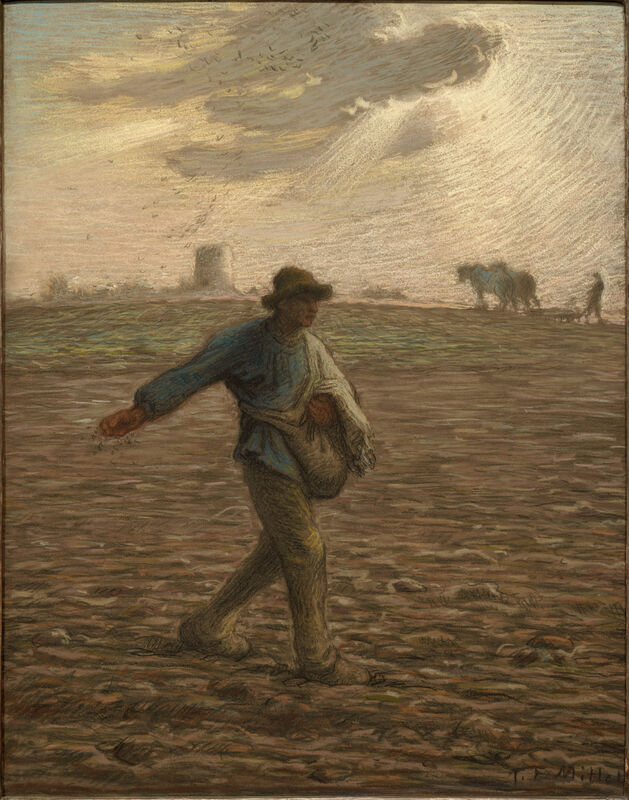
|
Doing the rounds on social media over the last few weeks is a meme which says if St. Paul could see the state of the Church today, we’d be getting a letter. Well, imagine what the state of the Church must have been if you received two letters from St. Paul. The very long reading from today is the Second Letter to the Church in Corinth in Greece. You can imagine the state of the Church in Corinth. But it is even worse, because it is not the Second Letter. It is actually the fourth letter that St. Paul writes to the Church in Corinth.
St. Paul is a writer who is always deeply personal. He shares very much of himself. It is interesting to note that most of the time, he dictated the epistles. The writings of Paul are only rarely written in his own hand. We know that for the majority of the time, he was dictating to a scribe. This section of his Second Letter to the Corinthians spans over two chapters. Remember, dividing scripture into chapters did not occur until much later, and the divisions were made by Catholic bishops. If your Protestant friends want to quote you chapter and verse, interestingly enough, they’re relying on Catholic bishops in order to do that.
In the Mass today, the epistle from Second Corinthians and the Gospel from St. Luke about the parable of the sower are significantly connected. They essentially encapsulate in a nutshell, first, hearing the word of God and the different conditions that allow for that to either flourish or not. And second, what happens to a hearer of the word of God. The Gospel tells us what the conditions are for hearing the word fruitfully and the Epistle teaches us what will happen if we do hear the word fruitfully. Essentially, St. Paul is telling us what’s it like for the seed to fall on good soil. He tells in a deeply, deeply personal way. Paul is greatly agitated even when sung in Latin. You can hear that Paul is deeply perturbed and he goes into great, great detail.
The “good soil” the Lord talks about in the Gospel is suffering for Christ physically, and St. Paul gives us the entire list of his physical sufferings, shipwrecks and the rest of it. And spiritually, he also gives us another very intimate detail. The thorn in the flesh, the angel of Satan – skolops sarchou in the Greek – the spiritual suffering that the Lord commits all of us who desire to follow him. All of us who have heeded the word and receive it with gladness will experience this suffering.
In the Gospel, we glimpse how the Lord teaches us the faith. We see it here as crystal clear as daylight itself. We see it because here we have not only a parable but also His words after He tells the parable.
The disciples have the same questions we have regarding the meaning of the parable. They ask the Lord, “What does this mean?” He explains to them in private, with this very, very enigmatic phrase, “To you is given knowledge of the mysteries, but not to them.” To you (Apostles) is given knowledge of the mysteries, but not to “them” (meaning you and me). The Lord reaffirms this in saying in seeing they may not see and in hearing, they may not understand. The Sacred Scriptures are not something one can simply pick up and consult, because the Lord has a meaning and that meaning is often hidden.
That is His purpose in teaching using parables. There is a hidden meaning in them. That meaning is imparted to the Apostles in private. They have been given the knowledge of the mysteries of God and we rely on them to give us that knowledge to interpret authentically the Sacred Scriptures. This, my brothers and sisters, is where our Protestant friends go wrong, because you need both Scripture and Tradition. You cannot just have the Bible; pick it up and understand what the Lord is saying, because the mysteries have been given to the Apostles. You need the Tradition of the Church as well as the Sacred Scriptures and the teaching authority of the Church in order to understand what on earth the Lord means in all of his teaching.
These two readings for Sexagesima came together quite early in the development of the Church calendar. One of the beautiful aspects of celebrating the traditional Roman Mass is that we can look back in history and see how the great figures of our Church have received these same words and written about them.
Of course, I lay down my preaching authority (such as it is) at the feet of these greats. How beneficial to all of us that your preacher today can look back over a thousand years of the Church receiving the same Scripture and giving an authoritative interpretation of it. Today was no exception. On February 19th, AD 591, Pope St. Gregory the Great gave a sermon on this very same Gospel. That is nearly 1,500 years ago. 1,500 years ago, the Church in Rome was hearing the same Gospel that you just heard proclaimed. This continuity in the Church occurred right up until 1970. How extraordinary to throw that away, extraordinary not to receive the fruits of that deep understanding, the Tradition, the knowledge of the mysteries of God imparted to the Apostles and given to the Church.
St. Gregory, reflecting upon this Gospel, concludes, “Well, for the preacher there’s nothing to do, because here we have the parable and we have the Lord’s exegesis of the parable.” We have the explanation from God himself as to what it means. You don’t need me to tell you what the seed is, because the Lord tells you it’s the word of God. Now, without His explanation, you’ll be relying on the preacher to interpret what that means. What does this tell us? It tells us that there is in fact an authoritative interpretation of all the Sacred Scripture. It’s held at the heart of the Church. It’s held by the Apostles and their successors, the bishops, and their coworkers, the priests. That’s how we are to receive the Word of God. It’s how the seed is to be sown, and not in any other way.
Where we don’t have the Lord’s own exegesis or explanation, we have to look to Tradition to find out what the scriptures actually mean. The Lord is always using symbolic language. Remember I was preaching a couple of weeks ago and I said to you that the scriptures are somewhat written in code. Particularly the epistles, are written in code because they might fall into enemy hands. And therefore, the mystery would have to be encoded in order that they be received. And then, Sacred Scripture would need to be interpreted in the living Tradition, not just the written text. This shows us how that process works. It’s like lifting the hood of how the Bible works in the Church, lifting the hood as to how the bishops and their successors actually teach.
Remember, too, that the word of God is not just Sacred Scripture. The word of God is Christ Himself. The Word of God is not simply the Bible. We heard about that a few weeks ago. The Tradition of the Church is also the Word of God, which we have to receive in good soil as the parable tells us. So, Christ is received as much in the sacraments as in the words of Sacred Scripture. That encounter with the Word, expansively understood, is what urges St. Paul to persevere in all of his sufferings.
PRAY
